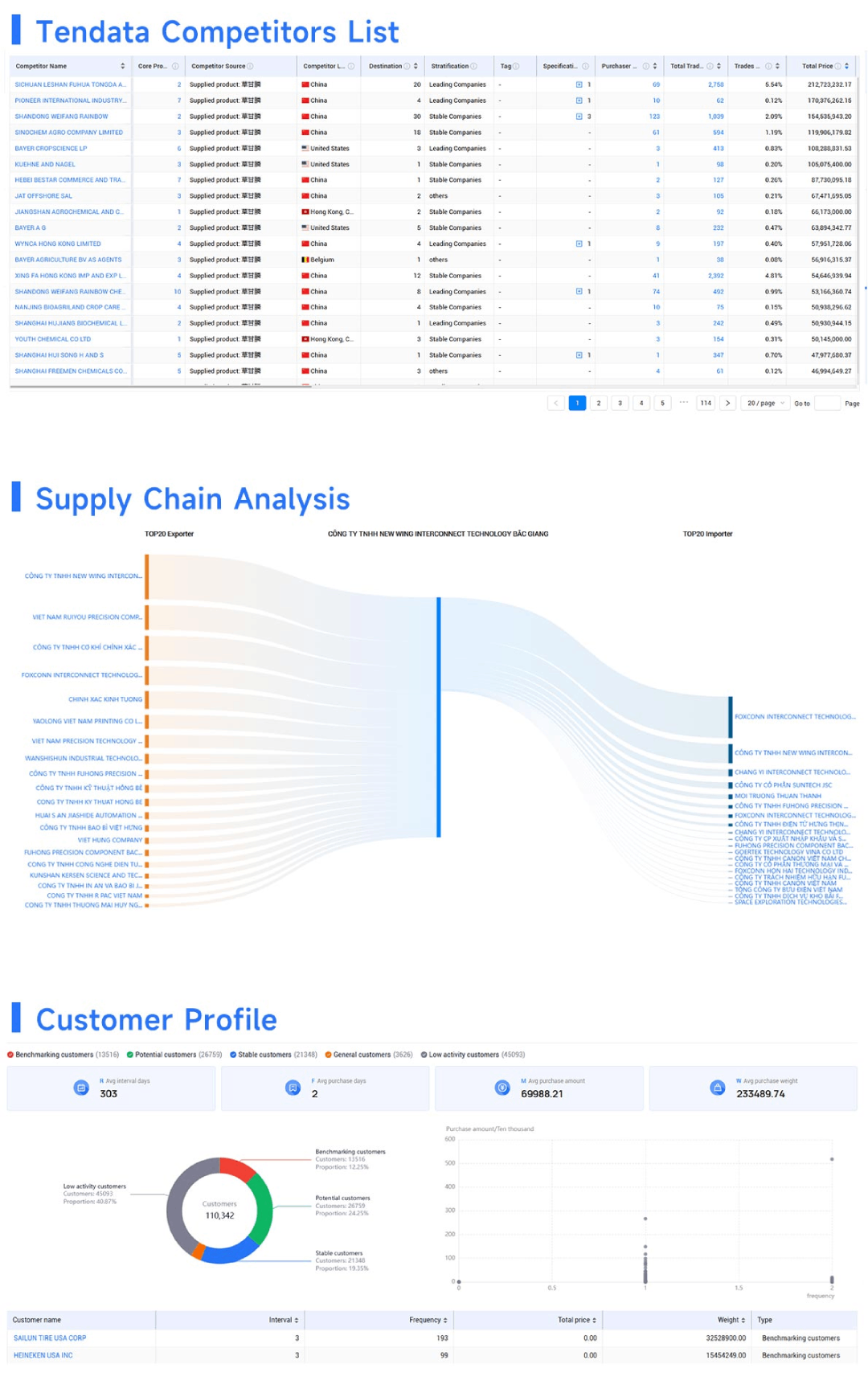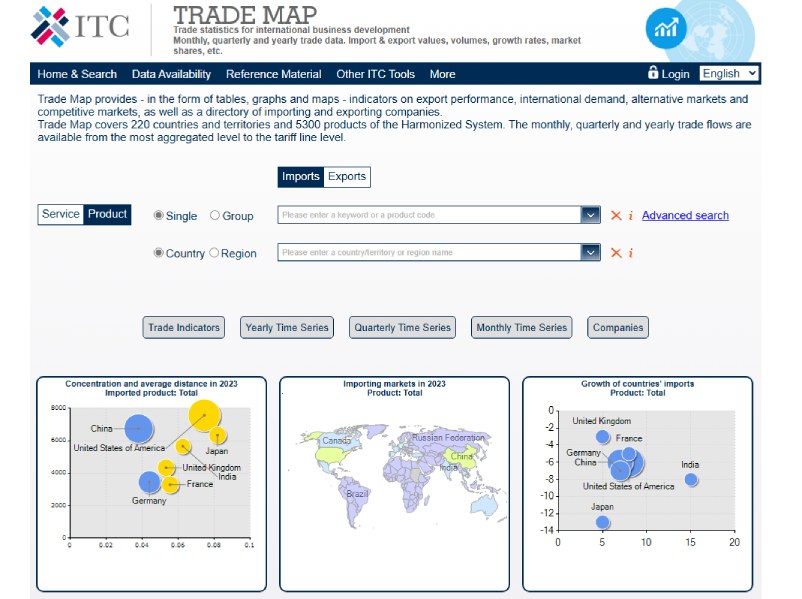 Trade Data Provider
Trade Data Provider
 2025-05-19
2025-05-19
In today's fast-moving global marketplace, trade data has become a crucial asset for companies seeking to grow internationally. From uncovering new buyers to monitoring competitor shipments, the ability to access and analyze import/export data can make all the difference. But with a variety of tools on the market, each offering different features and regional strengths, choosing the right platform depends on your specific needs. Below, we explore the best global trade data platforms, highlighting what makes each one valuable—and where some may stand out just a bit more.
1. Tendata
Best for: Global buyer discovery, shipment tracking, and market entry strategy
Tendata offers one of the most well-rounded solutions in the trade data space. With coverage of over 70 countries, it delivers detailed, customs-based import/export records, making it a go-to for companies that need both depth and usability in one place.
What sets Tendata apart is its balance between broad market coverage and granular insights. Its intuitive platform lets users search by HS code, product name, or company—then drill down into buyer/supplier profiles, trade volumes, and even transaction frequencies.
Key strengths:
Real-time access to verified shipment records
Detailed company-level profiles with trading histories
Smart filtering by port, date, product, and region
Clean, visual dashboards for trend analysis
Competitor monitoring tools that are easy to use
While some platforms focus solely on raw data, Tendata emphasizes actionable intelligence—helping users not just collect data but apply it strategically. That makes it especially valuable for SMEs and global teams entering unfamiliar markets.

2. UN Comtrade
Best for: Global trade research and historical data analysis
UN Comtrade is a trusted resource for macro-level trade statistics. Maintained by the United Nations, it includes decades of export and import data from over 170 countries. It’s particularly useful for researchers, policymakers, and analysts studying long-term trade flows or global policy impact.
However, it’s worth noting that Comtrade lacks the transaction-level detail many businesses need for sourcing or lead generation.

3. ImportGenius
Best for: U.S. and Latin American trade activity
ImportGenius provides shipment-level U.S. customs data, with additional coverage in select regions like South America and India. It’s ideal for companies looking to identify buyers or suppliers in the Americas and is known for its user-friendly interface.
Compared to platforms like Tendata or Panjiva, however, its geographic reach is more limited, particularly outside the Western Hemisphere.
🔗 https://www.importgenius.com
>>>> Click for Free Online Demo <<<<
4. Trade Map (ITC)
Best for: Export planning and quick country comparisons
Trade Map, powered by the International Trade Centre, is a great entry-level tool for understanding trade patterns. It allows users to explore top trading partners, export trends, and tariff data by country and product. It’s free, fast, and perfect for SMEs starting their export journey.
For deeper insights—such as identifying specific buyers or analyzing shipment-level data—platforms like Tendata offer a more operational layer of intelligence.

5. Panjiva (S&P Global)
Best for: Enterprise supply chain visibility and risk analysis
Panjiva delivers robust trade data and corporate linkages, with a strong emphasis on supply chain intelligence. It integrates customs data with financial and ESG metrics, making it especially useful for multinational corporations and risk-focused teams.
That said, for smaller teams or companies focused more on agile market entry, tools like Tendata may offer greater flexibility and ease of use.
>>>> Get Free Online Demo <<<<
6. Export Genius
Best for: Trade data in Asia and emerging markets
Export Genius offers detailed customs data from countries such as India, Vietnam, and Indonesia. It's a solid choice for businesses focused on regional sourcing or targeting emerging markets.
Still, for companies working across multiple continents or needing global consistency in their trade intelligence, platforms with wider country coverage, like Tendata, may offer better scalability.
While each tool listed here has its merits, Tendata stands out for businesses looking to combine global coverage, ease of use, and actionable intelligence in one platform. For companies serious about growing in international markets, it's a solution worth exploring.
Category
Leave Message for Demo Request or Questions


 T-info
T-info T-discovery
T-discovery

 My
Tendata
My
Tendata Market Analysis
Market Analysis Customer
Development
Customer
Development Competitor
Monitoring
Competitor
Monitoring Customer Relationship
Customer Relationship





































































































































